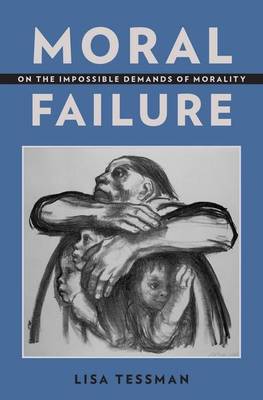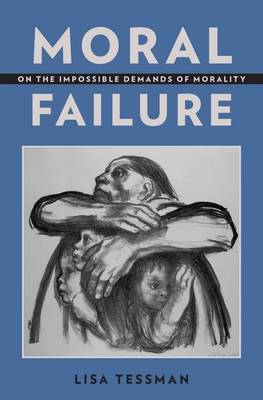
- Afhalen na 1 uur in een winkel met voorraad
- Gratis thuislevering in België vanaf € 30
- Ruim aanbod met 7 miljoen producten
- Afhalen na 1 uur in een winkel met voorraad
- Gratis thuislevering in België vanaf € 30
- Ruim aanbod met 7 miljoen producten
Zoeken
€ 225,95
+ 451 punten
Uitvoering
Omschrijving
Moral Failure: On the Impossible Demands of Morality asks what happens when the sense that "I must" collides with the realization that "I can't." Bringing together philosophical and empirical work in moral psychology, Lisa Tessman here examines moral requirements that are non-negotiable and that contravene the principle that "ought implies can." In some cases, it is because two non-negotiable requirements conflict that one of them becomes impossible to satisfy, and yet remains binding. In other cases, performing a particular action may be non-negotiably required -- even if it is impossible -- because not performing the action is unthinkable. After offering both conceptual and empirical explanations of the experience of impossible moral requirements and the ensuing failures to fulfill them, Tessman considers what to make of such experience, and in particular, what role such experience has in the construction of value and of moral authority. According to the constructivist account that the book proposes, some moral requirements can be authoritative even when they are impossible to fulfill. Tessman points out a tendency to not acknowledge the difficulties that impossible moral requirements and unavoidable moral failures create in moral life, and traces this tendency through several different literatures, from scholarship on Holocaust testimony to discussions of ideal and nonideal theory, from theories of supererogation to debates about moral demandingness and to feminist care ethics.
Specificaties
Betrokkenen
- Auteur(s):
- Uitgeverij:
Inhoud
- Aantal bladzijden:
- 296
- Taal:
- Engels
Eigenschappen
- Productcode (EAN):
- 9780199396146
- Verschijningsdatum:
- 1/12/2014
- Uitvoering:
- Hardcover
- Formaat:
- Genaaid
- Afmetingen:
- 160 mm x 236 mm
- Gewicht:
- 521 g

Alleen bij Standaard Boekhandel
+ 451 punten op je klantenkaart van Standaard Boekhandel
Beoordelingen
We publiceren alleen reviews die voldoen aan de voorwaarden voor reviews. Bekijk onze voorwaarden voor reviews.











